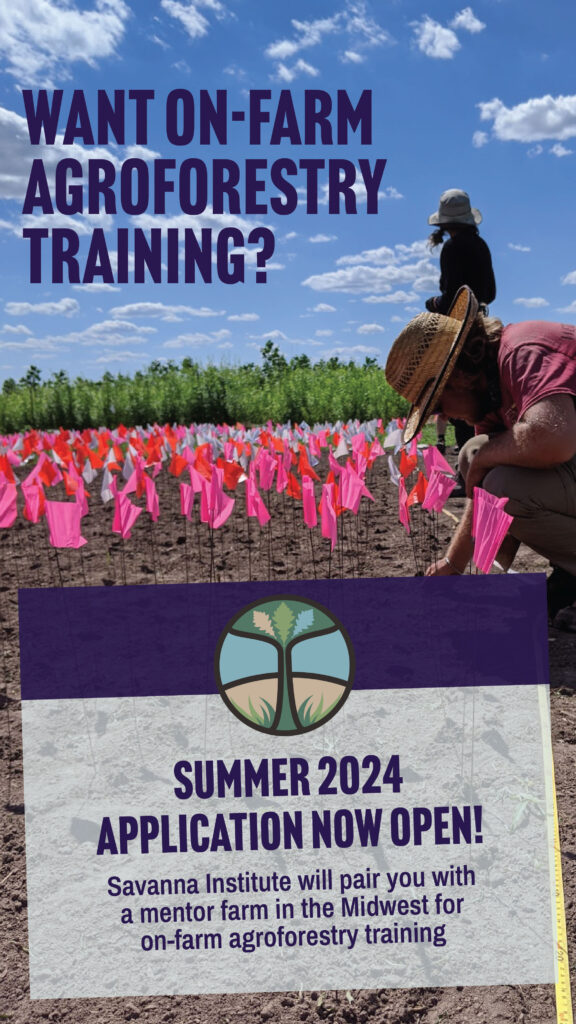
🔊 “Perennial Dreams and Realities” – Keynote by Dr. Ricardo Salvador, 2022 Perennial Farm Gathering
Imagining the landscapes of the future should be accompanied by strategies to transform the present reality. What will it take to overcome the power of trillions of dollars of sunk costs in the current structure of agriculture?
In the closing keynote of the 2022 Perennial Farm Gathering, Dr. Ricardo Salvador addressed this question. Dr. Salvador sees opportunities for more diverse and resilient agricultural systems to overcome some of their biggest roadblocks, but also sees dead ends and obstacles that must be avoided. In the most recent episode of Perennial AF, a recording of Dr. Salvador’s keynote presentation provides the roadmap for navigating this year’s Farm Bill.
About the Speaker:
Ricardo Salvador is the senior scientist and director of the Food and Environment Program at the Union of Concerned Scientists. He has over four decades of experience working with citizens, scientists, economists, and politicians to transition our current food system into one that grows healthy foods while employing sustainable and socially equitable practices. Dr. Salvador also serves on Savanna Institute’s Advisory Council.
Notable quotes (edited for clarity):
“The world that we’re living in right now doesn’t just happen to be the world we were born into – it’s the world our ancestors imagined.”
(Recalling a conversation with Maria Pearson, a Lakota native): “You hear this caricature of the native value of making decisions on the basis of seven generations, rather than just your current generation. And she said there’s a very mistaken understanding of that among whites. So I caught her afterwards and asked her about that. And Maria told me, she said, ‘I can’t speak for other groups, but in my band, this is how I was taught about the seven generations. You’re at the center of three generations before you and three generations after you. You’re in the middle. And you don’t get to make decisions on the basis of what is best for you. You will be informed by what the three generations before you decided, and what they’ve seen as the result of things they’ve decided. And likewise, you will be that person to the next three generations…’ You’re just the middle generation at any given time, looking out on that landscape of time. And that has been a very useful perspective for me to keep in mind when speaking big words about making generational change.”
“[Our current agricultural industry] is not the ultimate endpoint, either. There is a gold rush to transform the system further into one that is not only highly technological, but one that is highly automated. So the trend of depopulating the area will only be accelerated if these systems do get implemented, and all the signs are that investors and large scale farmers are falling all over themselves to follow this trajectory. The dream is that soon there will be enough information to fully inform the entire autonomous system how to farm down to the inch, so they say, so that things such as seeding, fertilizer rates, etc. can all be predicted and managed by someone sitting in Chicago, or New York City, or Singapore for that matter… It all turns agriculture essentially into a video game for somebody.”
“We are in a contest of visions, and a contest of the types of systems we’d like to see on the land, and ultimately we are talking about landscape use.”
“If you look at the entire agricultural foodprint [in the US], the food that we eat is a little bit more than 8% of that agricultural footprint. If you exclude land in the far West that is mostly used to pasture cattle, it’s a little bit more than 16%. I lay this before you to make the pretty outrageous claim – you’re one of the few groups I can say this to without you rising up in arms – we don’t need the majority of the agricultural land that is in agriculture at the moment to be in agriculture.”
“Thomas Jefferson did not believe in the right to own land in perpetuity. There is an established record of correspondence between him and particularly James Madison where they hashed this out… Thomas Jefferson believed that land should be redistributed every generation. So, you know, anytime you can quote Thomas Jefferson, you have a good leg up in an argument.”
“What I mean when I say we deserve a 21st century food system, I mean that it should correspond to the knowledge that we have in the 21st century, but also we deserve it because we’re paying for it. So rather than self-interested industrialists essentially scamming the country for their own benefit, we should be able to make the straight-faced argument that there is a better food system we could put together that would be better for the environment, better for eaters, better for everyone.”
More from Perennial AF
🔊 “You Can’t Believe It Grows Here” – Project Pawpaw with Adam D’Angelo
Adam D’Angelo is the founder of Project Pawpaw, a crowdfunded plant breeding effort focused on North America’s forgotten fruit: the pawpaw. In the latest episode of the Perennial AF podcast, Adam talks about why the pawpaw is a perfect candidate for plant-breeding efforts.
🔊 A Thorny Topic: Black Locust and Honey Locust for Agroforestry
A lot of people hate black locust and honey locust trees, but some people think they hold great potential for agroforestry. Greg Judy, Austin Unruh, Steve Gabriel, Brett Chedzoy, Eliza Greenman, and others share their perspective in this episode.
PFG2023 Recordings Now Available for Free on YouTube
In 2023, the Perennial Farm Gathering brought together 600 people, 60 presenters, and 20 sponsors online over three days of community-building for perennial agriculture. Keynotes by authors Robin Wall Kimmerer and Ross Gay kept us rooted in Traditional Ecological Knowledge and the creative joy that tending a garden can bring. Now, you can watch PFG2023 videos on our YouTube Channel for free.



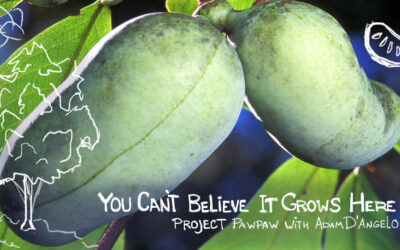
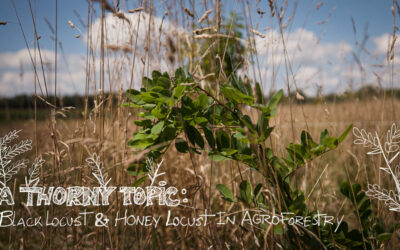
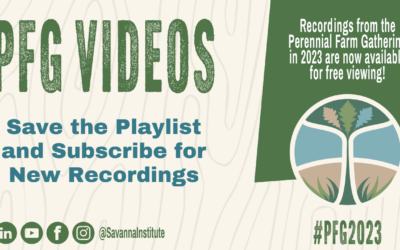
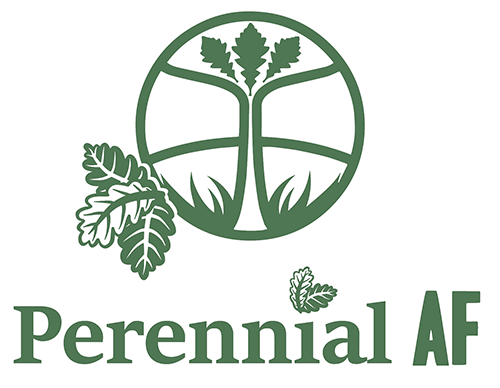


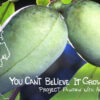 🔊 “You Can’t Believe It Grows Here” – Project Pawpaw with Adam D’Angelo
🔊 “You Can’t Believe It Grows Here” – Project Pawpaw with Adam D’Angelo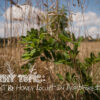 🔊 A Thorny Topic: Black Locust and Honey Locust for Agroforestry
🔊 A Thorny Topic: Black Locust and Honey Locust for Agroforestry 🔊 “Spreadsheets on the Radio” – Farm Viability and the Fruit & Nut Compass with John Hendrickson
🔊 “Spreadsheets on the Radio” – Farm Viability and the Fruit & Nut Compass with John Hendrickson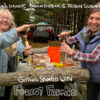 🔊 Getting Started with Forest Farming – Ingrid Daudert, Karam Sheban, and Robin Suggs
🔊 Getting Started with Forest Farming – Ingrid Daudert, Karam Sheban, and Robin Suggs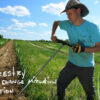 🔊 Agroforestry for Climate Change Mitigation and Adaptation – with Nate Lawrence and Monika Shea
🔊 Agroforestry for Climate Change Mitigation and Adaptation – with Nate Lawrence and Monika Shea